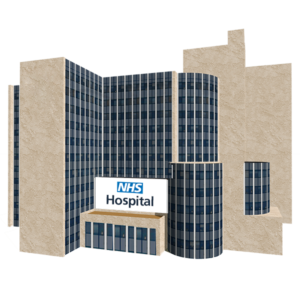Information for individuals and families

Here are some resources about the new guidance on wearing face coverings:
Gary Bourlet, Membership and Engagement Lead for LDE has made a video about face coverings and the new rules that come into effect on 24 July. Watch Gary’s video about face coverings here
Big Leaf Foundation have created illustrated guides on how to wear a face covering. These are available in several different languages.
Ace Anglia have recorded an video interview with a Primary Care Learning Disability Liaison Nurse. The video includes questions about wearing face coverings
It’s Sew Easy offer ten free face covering patterns to make yourself
To help us understand the rules that have changed since the beginning of July, Mencap have published easy read guides about:
- Travelling safely
- Going to work safely
- Going to a funeral
- Top tips for keeping safe
- Advice for people who are shielding
The government has published guidance on the re-opening of special schools and what this will mean for children.
Inclusion North have a hub on their website with resources, including video and audio. You can also download a weekly news update.
Cornwall People First have written a useful easy read guide about the easing of the lockdown restrictions and what they mean
The Minister for Housing has written a letter setting out the measures that are in place to support social housing residents during this next phase towards reopening society.
Eddy Phillips, Carl Shaw and David Gill have forwarded us some great LGBT+ resources they have put together that might be helpful. These are:
Plain English LGBT+ Covid Guide
Easy Read Covid Guide for Trans and Non Binary People
Social Care Institute for Excellence (SCIE) have a set of guides & resources for family members, support workers, social workers & OTs on Coronavirus and how that might affect people with learning disabilities or autistic people. You can see the SCIE guides and resources here
Beacon (the advice service about NHS CHC) has increased capacity to respond to queries about NHS Continuing Health Care and has produced resources about the implications of Covid19
GPs have been given guidance by NHS England about how to support their most ‘at risk’ patients. You can read the guidance and updates for GPs here
Together Matters has put together a range of useful resources and information, including information to help family carers plan with others to get the support they need during the current crisis. You can see the Together Matters resources here
NWTDT and partners have produced a useful Grab Sheet about trauma
The British Association of Social Workers has put out guidance on safeguarding during the outbreak. you can read their guidance for safeguarding adults during Covid 19 here
Be Human has a webpage for people and families to help share useful links, practical tips and ideas, including information about what people who manage their direct payments have put in place for themselves and their PA’s. Visit the Be Human web pages here
The Challenging Behaviour Foundation have put together a range of resources and guidance specifically for families, including FAQs about the Coronavirus law and emergency powers. See the resources from the Challenging Behaviour Foundation here.
#RightfulLives have developed an online resource called My Own Front Door, particularly useful for families, which includes information and ‘livestreams’ on the Care Act Easements and Emergency Powers. You can visit the My Own Front Door resources and livestreams here
British Institute of Human Rights have a webpage with briefings on coronavirus, the law and Human Rights. You can see the BIHR coronavirus resources here
The Learning Disability Professional Senate have put together two guides, one for families and one for self advocates. You can see the LD Senate resources for people with a learning disability here and the LD Senate resources for families here
Photosymbols have developed a new website just for Coronavirus information called Keep Safe, with lots of useful easy read resources. You can see the Keep Safe web resources here
The Sensory Projects have shared resources for any families who are trying to home educate through the Coronavirus outbreak. It includes useful multi media resources for anyone about Covid 19. You can see the Sensory Projects multi media resources here
Inclusive Communication Essex (ICE) have developed a range of resources, including easy read and resources to use with children. You can access the ICE easy read web resources here
The Special Needs Jungle are sharing all the information or resources they think will help SEND families. You can access the Special Needs Jungle coronavirus SEND resources here
The National Autistic Society has information for autistic people and their families. You can see the National Autistic Society coronavirus resources here
Carers UK are sharing the up to date guidance and resources on their web site. You can find the Carers UK resources here
Citizens Advice has useful information about the extra help the government has put in place around paying bills, sick pay and benefit entitlements. You can visit the Citizens Advice coronavirus help here
Return to main Resources page here

